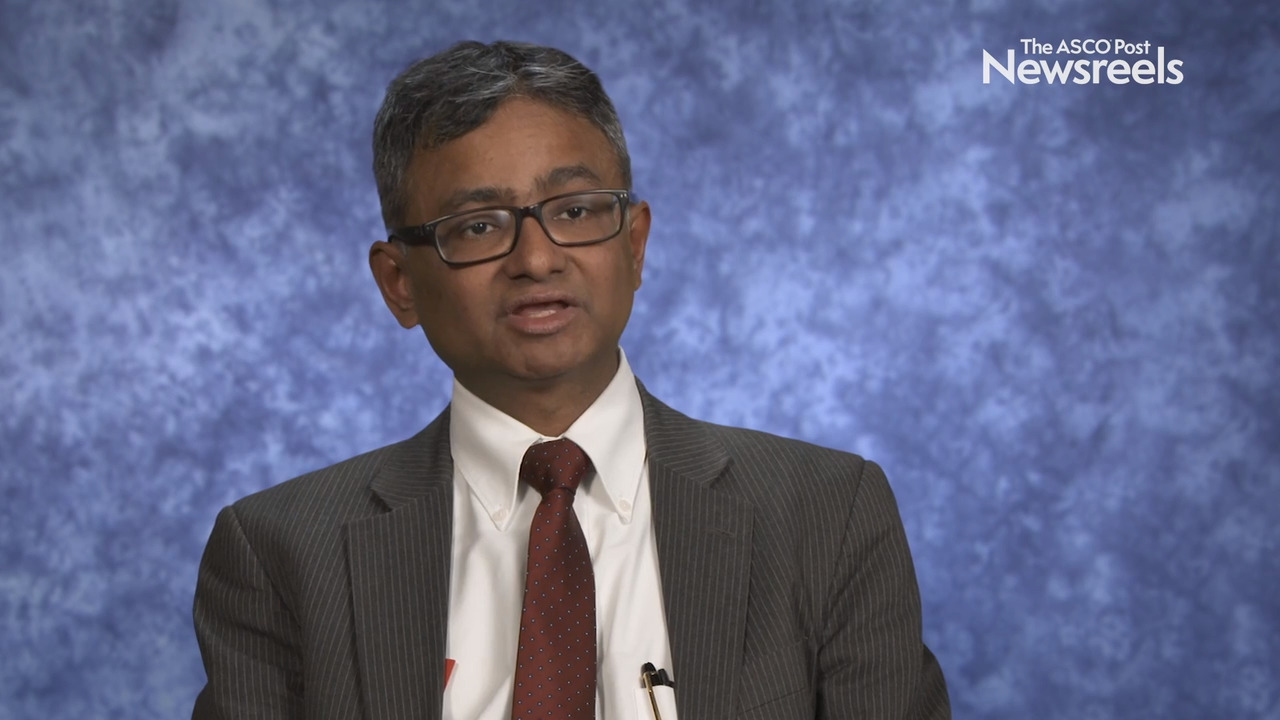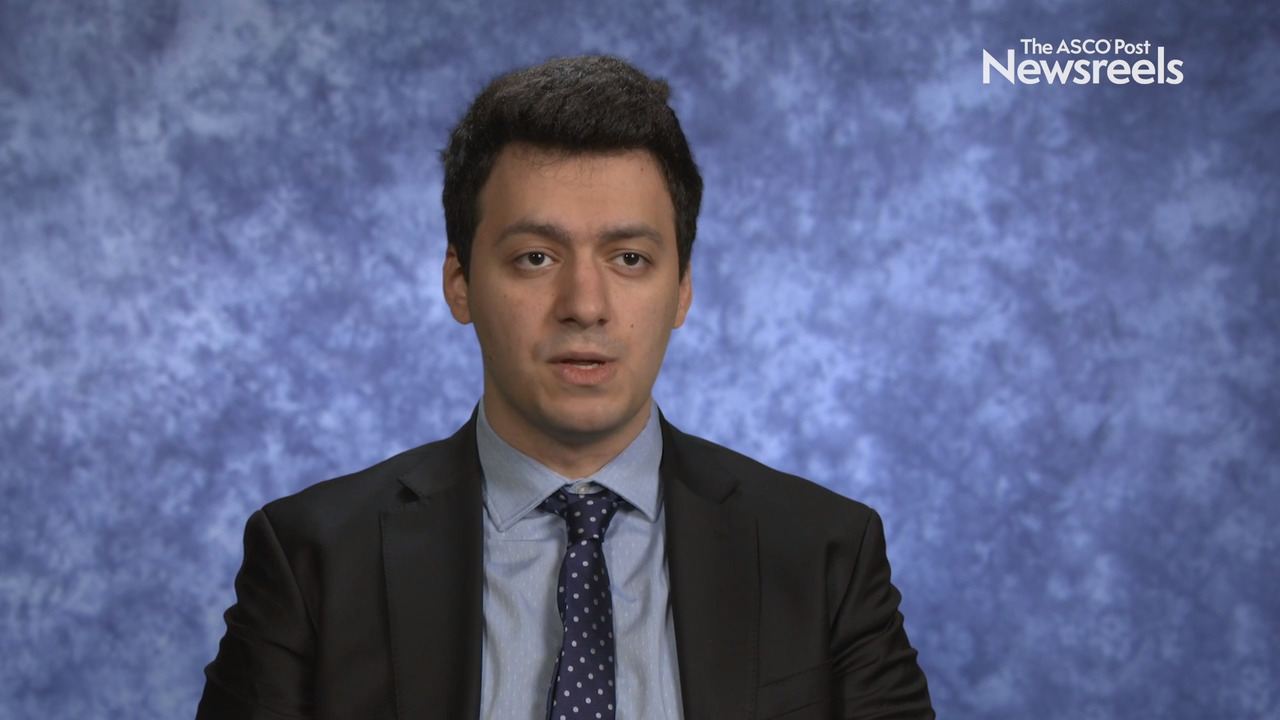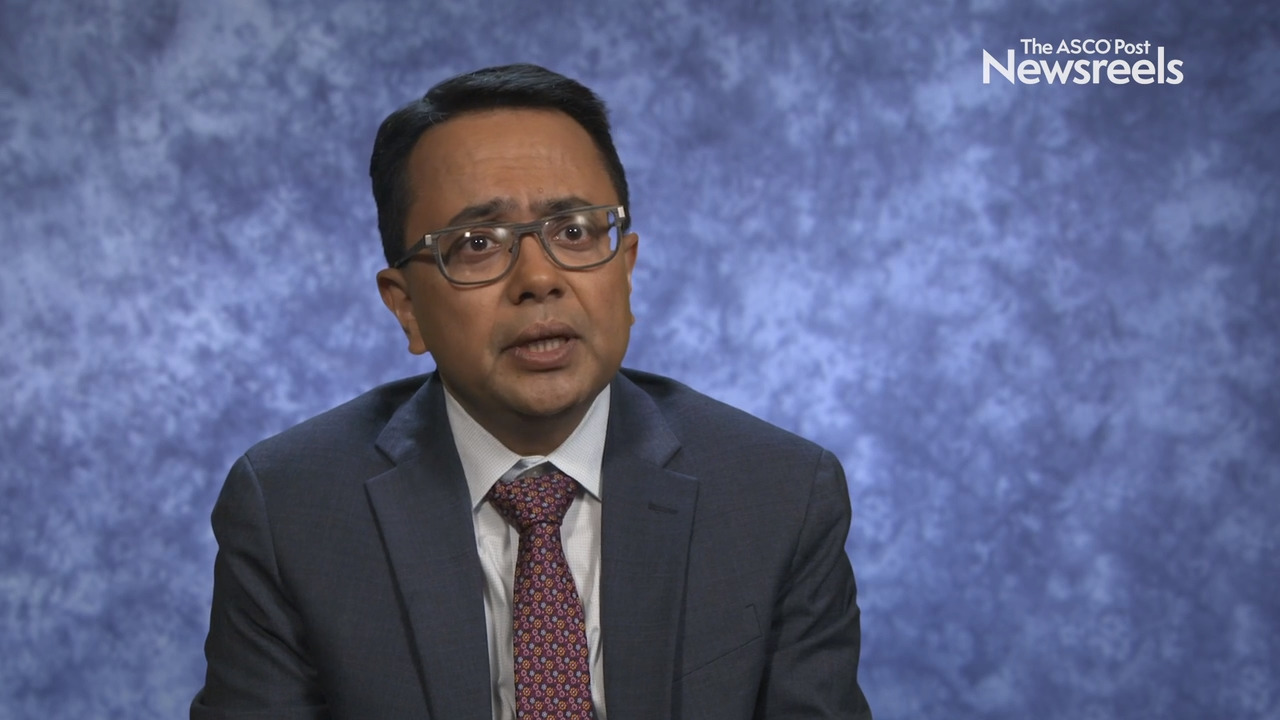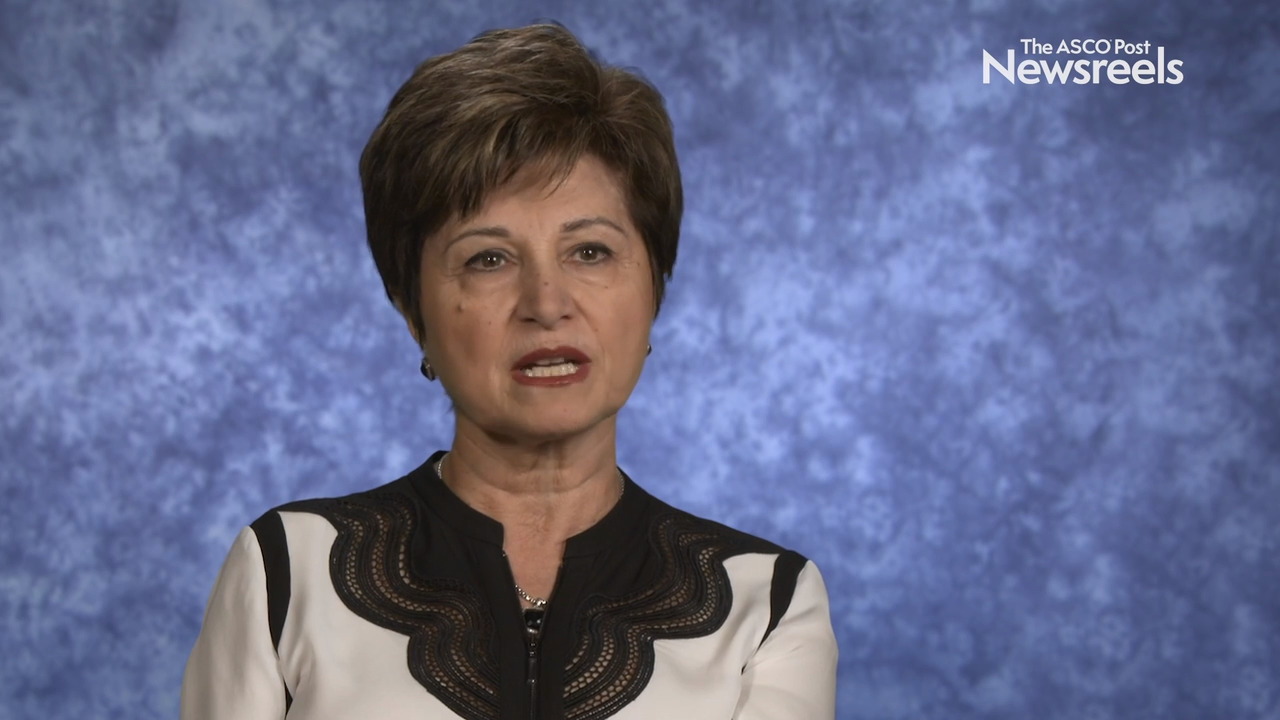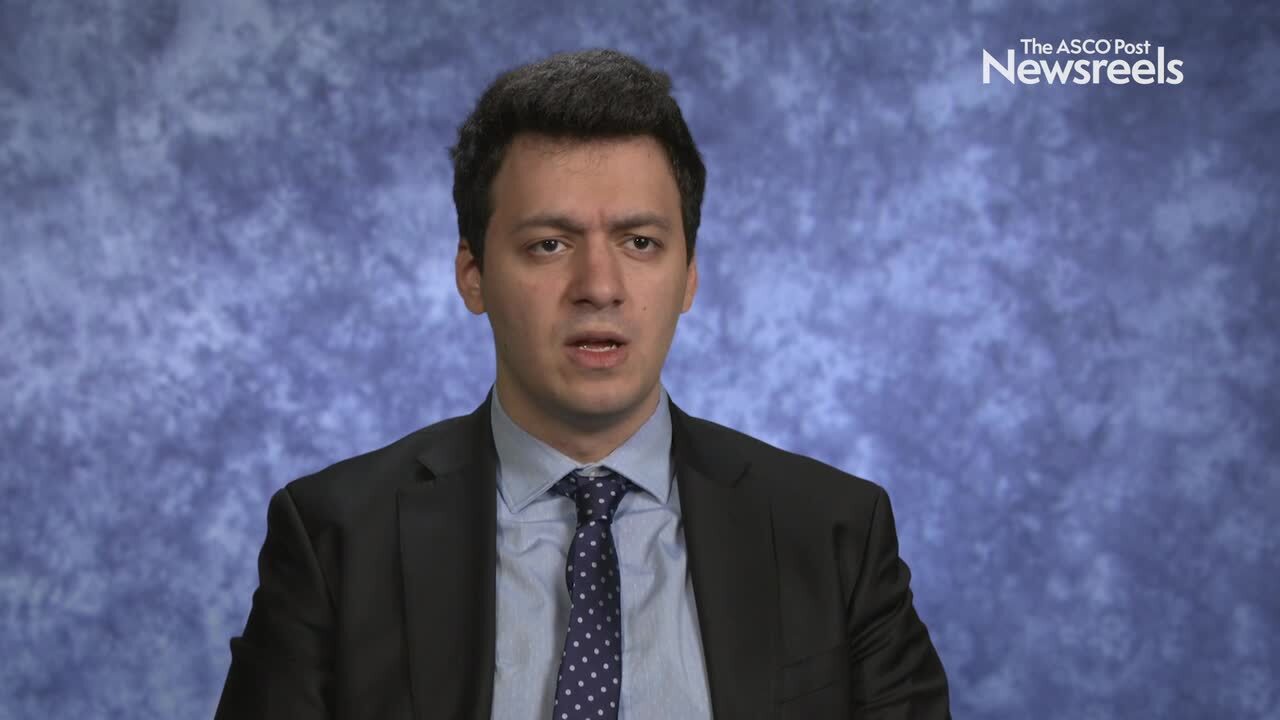Nicholas D. James, PhD, MBBS, on Bladder Cancer: Cetuximab With Chemoradiotherapy
2020 Genitourinary Cancers Symposium
Nicholas D. James, PhD, MBBS, of The Institute of Cancer Research in London, discusses results from a phase I/II feasibility study that showed the combination of cetuximab, chemoradiation, fluorouracil, and mitomycin yields high bladder cancer control rates with acceptable toxicity and quality of life, meriting further evaluation in a randomized trial (Abstract 491).
The ASCO Post Staff
Syed A. Hussain, MD, of the University of Sheffield, discusses phase II findings comparing nintedanib or placebo in combination with gemcitabine and cisplatin in locally advanced muscle-invasive bladder cancer. The data showed that adding nintedanib was safe and well tolerated, with a significant improvement in progression-free and overall survival at 1 and 2 years (Abstract 438).
The ASCO Post Staff
Ziad Bakouny, MD, of Dana-Farber Cancer Institute, discusses the controversial and ill-defined role of cytoreductive nephrectomy in treating patients with metastatic renal cell carcinoma who have received targeted therapies or immune checkpoint inhibitors (Abstract 608).
The ASCO Post Staff
Neeraj Agarwal, MD, of the University of Utah Huntsman Cancer Institute, discusses trial findings that showed the combination of cabozantinib and atezolizumab had a tolerable safety profile and showed activity in men with metastatic disease. Further evaluation of cabozantinib and atezolizumab is planned in a phase III trial (Abstract 82).
The ASCO Post Staff
Maha Hussain, MD, of the Robert H. Lurie Comprehensive Cancer Center of Northwestern University, discusses the first phase III clinical trial to demonstrate the feasibility of tissue-based genomic testing to preselect men with metastatic castration-resistant prostate cancer for targeted treatment and the superiority of the PARP inhibitor olaparib compared to enzalutamide or abiraterone (Abstract 195).
The ASCO Post Staff
Ziad Bakouny, MD, of Dana-Farber Cancer Institute, discusses two types of renal cell cancer that are associated with poor prognosis. Because recent early data suggest these tumors respond well to immune checkpoint inhibitors, the authors characterized the tumors in an integrative molecular and clinical study (Abstract 715).
